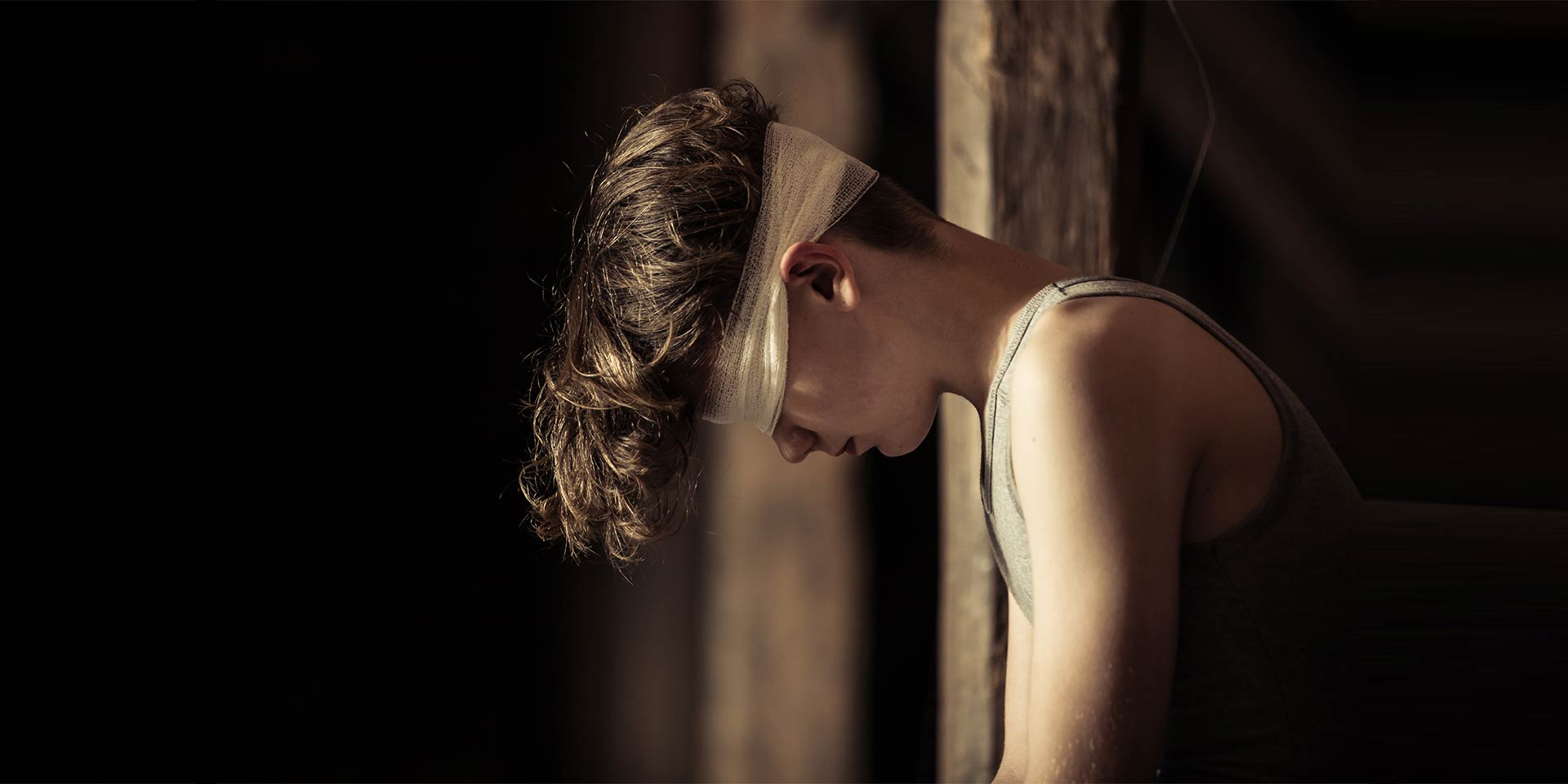The latest global statistics on the incidence of depression indicate that more than 300 million people of all ages suffer from this disorder, out of the 7.6 billion people on the planet. This means that about 4% of the world’s population suffers from depression.
We see its consequences, but we deny its presence
In Romania, for instance, although in recent years we have seen an increasing openness to discussing the symptoms and treatment patterns for depression, attempts to eliminate the stigma associated with this disease are still too weak in the face of the social prejudices the idea of mental illness generates. People do not talk about their suffering, for fear of being judged. But silence does not eliminate the consequences of the disease. Only by looking at these consequences can we get a glimpse of what hidden depression means.
Depression is the leading cause of medical disability for people ages 14-44, Dr. Robert Leahy says in his book, “Beat the Blues Before They Beat You”.
The period between 14 and 44 years old is what is believed to be a human’s “most productive” 30 years—years that, once lost in the darkness of the disease, no doctor can recover. We can begin to understand more clearly what kind of impact depression has relating it to the image we have of disabled or ill young people and adults, and realize that the number of people with depression is even greater. In the absence of statistical reporting, only using our imagination can help us to get at least an idea of the real incidence of this disease.
Leahy also wrote that depressed people lose 5-6 hours of productive work every week because they are unable to gather their thoughts. (Depression is known to drastically reduce our ability to concentrate, among other effects on our cognitive abilities.) Economists have estimated that in terms of lost productivity and rising health care costs, the cost of depression could be around $83 billion a year in the United States alone.
The statistics mentioned are valid for the decade 1990-2000. But 22 years have passed since then, in which the world has undergone great transformations. The latest calculation—made by psychiatrist P.E. Greenberg, who had also made the previous estimate—raised this amount, in just 10 years, to 210.5 billion dollars. The statistics were published in 2015, but the calculation only covers the spending made a decade ago. Who knows, at this point, what the real cost of the disease is?
For someone who does not suffer from depression, it can be difficult to understand or to strictly establish, as a psychologist does, how many hours are lost on account of depression and how many due to other reasons. It is nevertheless shocking to find out that 80% of the people suffering from depression experienced for themselves the negative impact the disease has on their daily activities. Things they used to do with pleasure they can’t do anymore because they don’t feel motivated or they don’t think these activities could benefit them.
Things that they should do, but for which they do not find enough internal resources, end up causing a chain reaction and affecting their condition because something not done timeously can require three extra actions to correct it or maybe an emergency rescue reaction. However, with depression, the lack of resources that prevent you from doing something today will not change tomorrow, when you will have to do three things to make up for what you did not do yesterday.
And the negative consequences that snowball into bigger problems affect not only the suffering person, but also their circle of influence, whether close relatives or their professional circle. This is an aspect that should be taken into account when those around us, in the family or at work, engage in seemingly incomprehensible inaction. The frequency with which inaction or delayed action gets in the way of things should not immediately lead us to generalized accusations of “laziness”, “complacency” or “irresponsibility” of the other.
A depressed person, lacking motivation and resources to act can easily pass as lazy, if those around them are content to just put it down to “they are not like they were before; they’re lazy.”
Then, like any problem, depression does not come by itself, but in 75% of cases it is accompanied by another psychological problem. Most often (in 59% of cases to be more precise), people with depression also suffer from anxiety disorders. Not knowing exactly what is happening to them or seemingly trying to find the quickest way to deal with their inner turmoil, a quarter (24%) of depressed people abuse substances (alcohol, tobacco, drugs), which only deepens their psychological disorders and ruins their physical health.
When we say what’s on our mind
Actor Wil Wheaton is loved by two generations: those who faithfully watched the Star Trek series and know him for the role of Wesley Crusher, and their children, who watch the comedy series Big Bang Theory, where he plays a fictional version of himself. He is loved by a wife, two grown children, and a daughter-in-law, of whom he says is like “my own child”. But the undeniable love of those close to him and the general public could not protect Wheaton from his greatest enemy: chronic anxiety that degenerated into depression over time.
“My name is Wil Wheaton. I live with chronic depression”. This is how the article he wrote in June 2018 on the Medium website begins. Wil regretfully says that only at the age of 34, after a youth spent in torture caused by his own mind, did he realize that his suffering, which he had tried to explain and tolerate in dozens of ways, was in fact a disease—a disease like any other, which did not make him a weak person or someone unworthy of respect.
“It’s right there in the name ‘Mental ILLNESS’ so it shouldn’t have been the revelation that it was, but when the part of our bodies that is responsible for how we perceive the world and ourselves is the same part of our body that is sick, it can be difficult to find objectivity or perspective,” Will says.
The actor recounts with admirable sincerity moments of maximum vulnerability, in which the nocturnal panic attacks left him incapable of sleeping other than on the floor of his sister’s room, where he knew that he was not alone and that he was protected. What could be more explicit about the fragility of the disease than an adult who recounts how, at the age of 30 or so, chased by never-ending nightmares causing physical reactions, ends up leaving his apartment to take refuge on the floor of his childhood home?
However, Wheaton’s story is one with a happy (and open) ending. After years of “survival,” as he puts it, he went to see a doctor and received help.
“I started a low dose of an antidepressant, and I waited to see if anything was going to change. And boy did it. My wife and I were having a walk in our neighbourhood and I realized that it was just a really beautiful day—it was warm with just a little bit of a breeze, the birds sounded really beautiful, the flowers smelled really great and my wife’s hand felt really good in mine. And as we were walking, I just started to cry and she asked me, ‘What’s wrong?’ I said, ‘I just realized that I don’t feel bad and I just realized that I’m not existing, I’m living’”.
Wheaton described his depression and anxiety as a dark, very noisy room from which he could not get out, but all he could do was sit in it and feel the darkness and the noise. “But with the help of my wife, my doctor, and medical science, I found a doorway out of that room.”
“I’m not religious,”, Wheaton says, “but I can still say thank God for Anne Wheaton. Thank God for her love and support. Thank God that my wife saw that I was hurting, and thank God she didn’t believe the lie that depression is weakness, or something to be ashamed of. Thank God for Anne, because if she hadn’t had the strength to encourage me to seek professional help, I don’t know how much longer I would have been able to even exist, to say nothing of truly living.”
Wheaton’s words are conclusive in that you don’t have to be depressed yourself to be able to see when a person is suffering. It is at least insensitive, if not inhuman, to expect someone suffering from such mental suffering to get out of it alone. Because this is the origin of the stigma.
The shame of those who suffer from depression is not necessarily a direct result of the disease, but rather an additional burden that those around them add to the disease by their lack of compassion and ignorant verdicts. No one should ruin their life for fear that others will judge them for their weakness.
Wil Wheaton managed to stop the torture of his illness because someone not only loved him, but saw his illness as a disease, not as a defining and unchanging trait that takes over his being. The actor admitted that it took a lot of persuasive work to get to the doctor. But what argument can more easily persuade a man to do what is right for him if not love?
Wheaton’s experience is yet another example, in addition to the many pieces of evidence we all know, that shame has not saved anyone from death, but love continues to save lives today. And then how can we do anything other than what is in our power so that shame no longer has a toll on those who suffer from mental disorders? No one is ashamed of having a cold or chicken-pox. Why would we allow ourselves to think otherwise about a mental illness?
Alina Kartman majored in Communications and Public Relations, but opted for a career in journalism. Having published more than 1,500 pieces of writing over her 13 years of media activity, Alina has senior editorial experience. She is part of the team who advanced semneletimpului.ro, the platform for the Signs of the Times magazine in Romania. She is currently pursuing a Master’s degree in Programs and Investment Management.



















